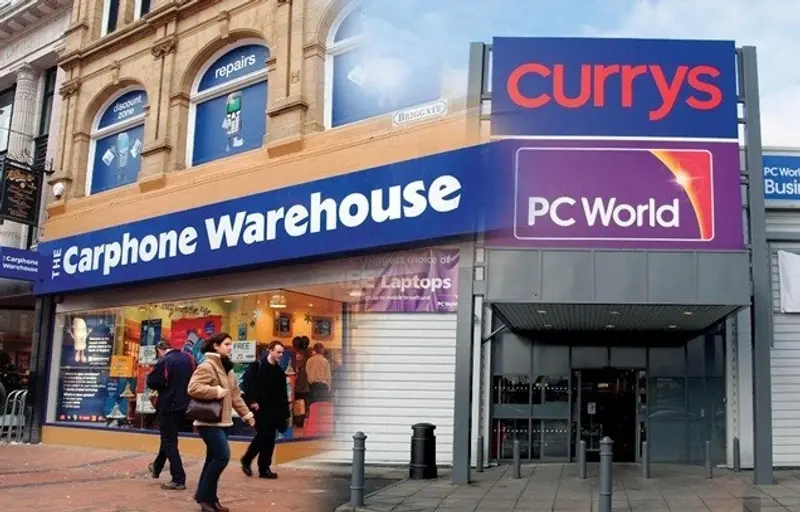
Shares in Dixons Carphone (DC.) have fallen by 8% to 139p after the company unveiled a pre-tax loss of £440m for the first half of the year and a cut in the dividend.
The loss is due to charges of £490m, most of which is a goodwill write-off on the UK and Irish mobile business acquired when it took over Carphone Warehouse.
The rest of the charges are for reorganisation costs and losses on selling property and non-core businesses.
The dividend has been cut from 3.5p per share a year ago to 2.25p per share in order to retain cash as the firm’s net debt position has jumped to £274m from £206m.
These results look as though new chief executive Alex Baldock has thrown everything but the kitchen sink at them so as to start with a clean sheet of paper.
New strategic plan to revamp sales and earnings
The other big feature of today’s update is the ‘new vision and strategy’ to revitalise the business and drive gains in market share and profitability by focusing on online sales, customer credit and the mobile business.
Online is already performing well with sales up 12% in the first half but the chief executive is concerned the firm’s weighting is below-average, which is holding it back given that all of the growth in the market is online.
Credit is a central part of the proposition as it is one area where Dixons Carphone and other retailers can differentiate themselves from pure online operators such as Amazon. The trick is to manage the risk and avoid both fraud and bad debtors.
Turning round the mobile business is a harder fix as customers aren’t upgrading their mobile phones as often as they used to. This is because each new generation of phones has fewer new features or less ‘added utility’ than the previous generation.
Therefore more of us are keeping our phones for longer and switching to SIM-only deals which generate much lower revenues for firms like Carphone Warehouse.
Part of the new strategy is to cut costs with a target of £200m to come from merging the firm’s IT systems and negotiating better terms with their suppliers.
Underlying business ticking along, guidance maintained
While the market reaction to the £490m of charges is understandable, the actual underlying performance of the business isn’t bad. Like-for-like sales are up 4% in the second quarter compared with zero growth in the first quarter as Dixons gains market share in the UK.
As well as better sales of electronics, games were a big driver thanks to the roll-out of gaming centres in seven stores.
Another positive is that management is keeping its full-year pre-tax profit guidance of £300m and its medium-term EBIT (earnings before interest and tax) margin target of 3.5% although in any other business an EBIT margin that low would hardly be something to crow about.
While the mobile business still needs work, the firm has a new deal with 3 which will make its network more competitive and has all the ‘connectivity’ it needs with other operators in order to achieve its plan.




